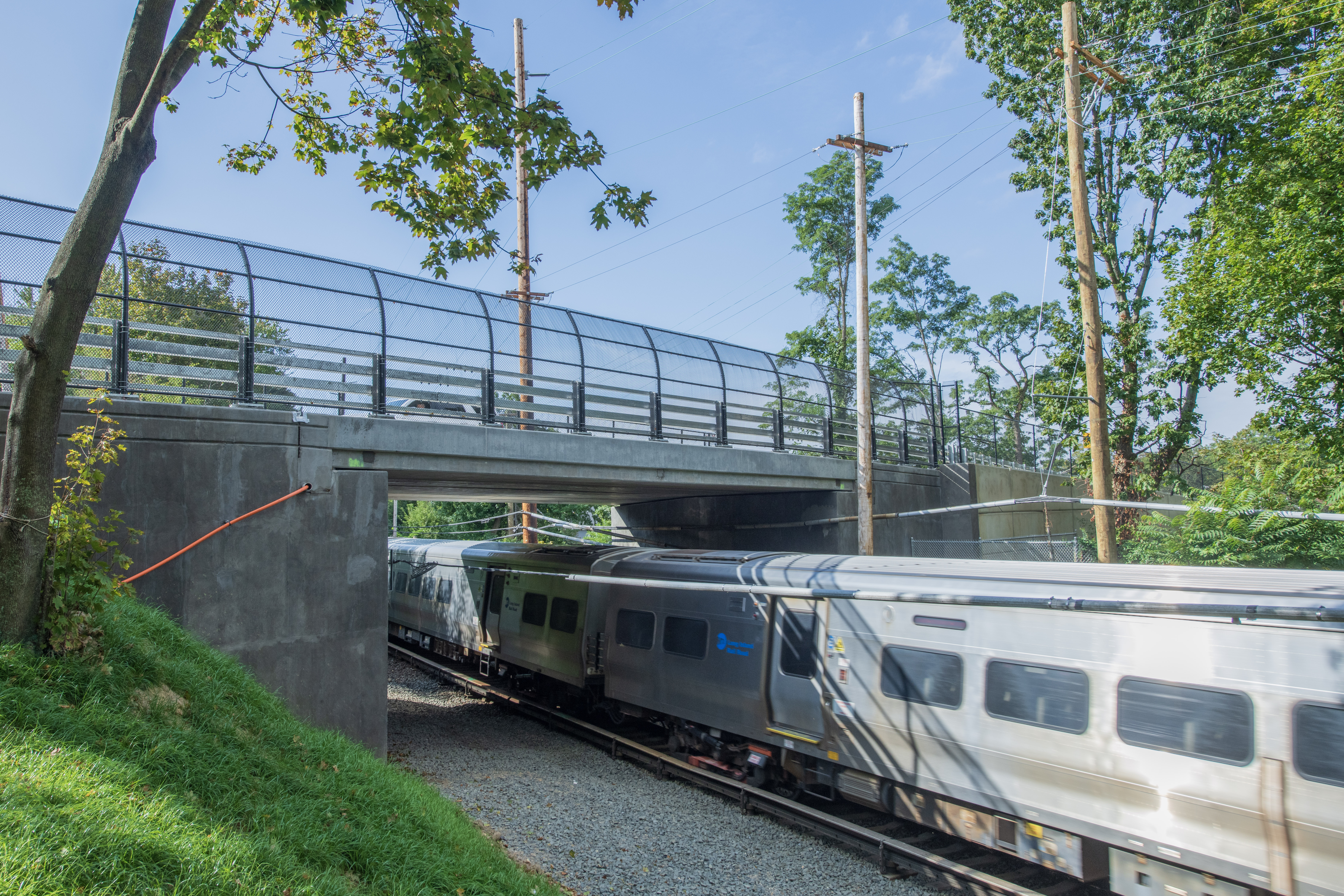$7.3 Million Under Budget, Crews Replaced a 128-Year-Old Structure with a Modern Bridge with Retaining Walls and Drainage Improvements for Added Resiliency, New Roadway and Sidewalks
Project Finished Four Months Ahead of Schedule and Under Budget, In Line with MTA’s “Faster, Better, Cheaper” Commitment
The Metropolitan Transportation Authority (MTA) today announced it had completed work to replace the Webster Avenue Bridge in Manhasset, and the new span is now open to the more than 1,500 vehicles and pedestrians who use it each day. Crews worked over the summer to fully demolish the original structure, which was built in 1897, and replace it with a safe, modern, climate resilient bridge.
“Replacing this 128-year-old bridge is an important step toward keeping Long Island Rail Road service safe and reliable in the long term. We’re proud to have finished the job on budget and ahead of schedule,” said MTA Construction and Development President Jamie Torres-Springer. “From the Port Washington Branch to our entire network of subways, buses, and commuter rails, we’re improving our system faster, better, and cheaper than ever before.”
“Working closely with our partners at MTA Construction and Development we were able to replace a bridge that’s over a century old with minimal disruption to LIRR service on one of our busiest lines,” said LIRR President Rob Free. “It's another example of how we are committed to building and maintaining a more resilient system that benefits the communities we serve.”
The 77-foot, three span bridge, which carries two lanes of traffic each day, and a sidewalk over the LIRR’s Port Washington Branch, had outlived its useful life and was due for replacement. The project began in January 2025, which started six months of preparation work to get the old bridge ready for demolition and rebuilding.
In June, crews completed the removal of the center span and the installation of pre-cast concrete for the new one. This work was originally planned for two weekends, but because the MTA emphasizes design-build contracts, the work was finished in a single weekend. This significantly reduced LIRR customer inconveniences and saved the agency (and taxpayers) roughly $1 million in associated costs. The bridge roadway was widened and features a greater clearance underneath.
Once the structure of the new span was in place, crews installed catch basins and a new drainage system to prevent stormwater from falling onto the tracks below. They also rebuilt the adjacent roadway, sidewalks and retaining walls, making the new bridge not only safer but also stronger and more resistant to the effects of severe weather, with a 75-year projected lifespan.
The Webster Avenue Bridge replacement project was completed four months ahead of schedule and under budget by $7.3 million, or 31%. The total project cost was for $16.5 million, compared with an original anticipated budget of $23.8 million. This was accomplished as a result of the open, competitive procurement process where the MTA reviewed proposals from contractors seeking to do the work. The selected bidder, a joint venture of Railroad Construction Company, Inc. (RCC) and GCCOM Construction Company, Inc. (GCCOM), proposed an innovative approach that reduced the number of required track outages, resulting in cost savings by scaling back on personnel support needed for track outages.
